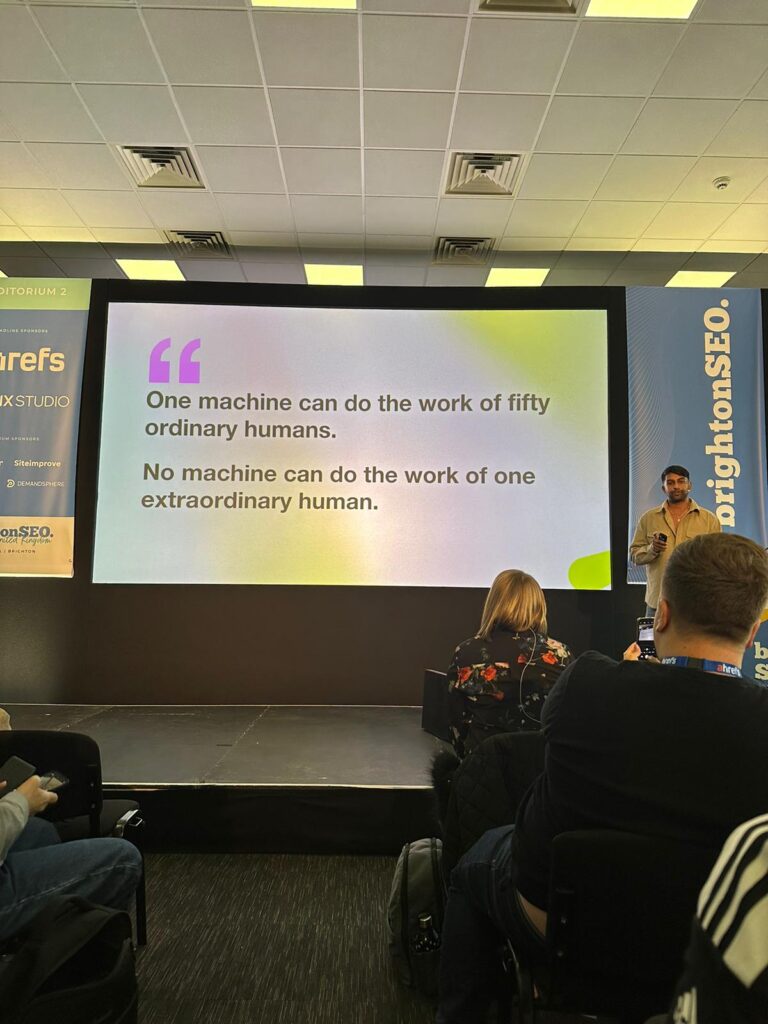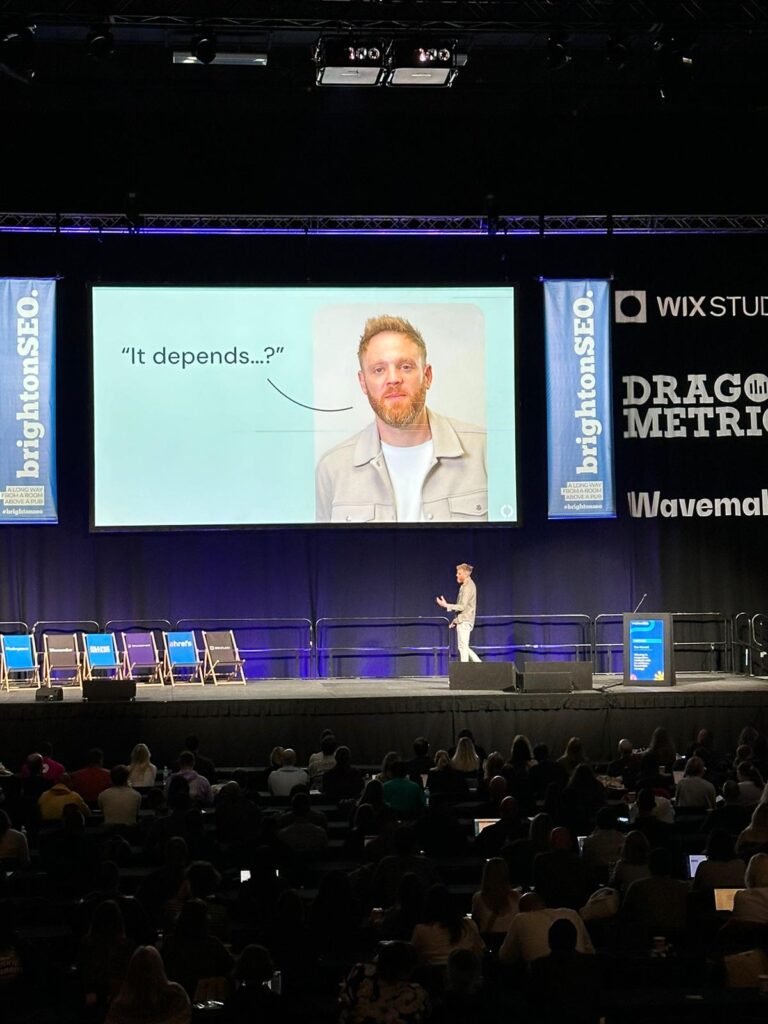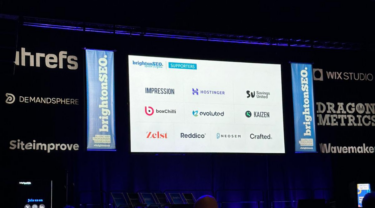Fresh back from brightonSEO 2024, these are all the key learnings our team took away from the world’s largest search marketing conference this year.
In a normal working week, our SEO team covers all corners of the UK (working across our Manchester, Ipswich and Midlands offices) so brightonSEO was the perfect opportunity for everyone to descend in one place and enjoy soaking up some new SEO knowledge – enjoy some in-person team bonding by the Brighton seaside! There were some seriously amazing speakers bringing their expertise to the stage over both Thursday and Friday, giving us lots of memorable highlights.
Luke Gosha: Leveraging leadership skills to work with AI
Gosha’s talk was energetic and impactful, a perfect way to wrap up the conference after a brilliant few days. Luke reminded us that we have so much to gain from improving the way that we use AI, as well as speaking passionately about what it really means to be a great leader.
We got to see exactly what prompts and output Gosha has been able to generate by really nurturing the way that he interacts with GPT. By providing feedback and clarity around what is and isn’t working, giving examples, having a conversation, and also asking questions.
Key takeaways:
When prompting GPT, make sure that you:
- Specify the role
- Specify the task
- Specify the background
- Specify the understanding
Link deck: https://speakerdeck.com/lgosha/leveraging-leadership-skills-to-work-with-ai

Abbie Dando: How to double online revenue & leads using blog content
Abbie’s talk was especially interesting for anyone planning a trip to Disney, or interested in knowing the best place to find cheap tickets! She took us through her process for exploring the user journey, focussing on the purpose and intention behind each piece of content involved in a considered purchase (like the Disney example). It was a brilliant recap of the importance of knowing your customers.
We loved the recommended breakdown of things to consider to write more meaningful content for customers, including:
- Pain points
- Queries
- Worries
- Wants
- Needs
- Aspirations
Producing content that aims to remedy, alleviate, or target each of these areas is a sure way to guarantee a smoother journey for customers, which is what it’s all about.
Key takeaways: why aren’t you tracking your content properly?
Refine, refine, refine! As Abbie highlighted there is no point in continuously writing new content without reviewing performance of what has already been done. We loved the recommendations to consider:
- Blogs with high sessions – explore how to drive conversions
- Views per session – where are customers going? Explore how to funnel them better
- Blogs with highest revenue – explore what can be learnt from them
Tom Mansell: Winning with an evidence-based strategy
Tom captured everyone’s attention in the room with his effortlessly confident approach on stage, and talked through why and how we should be communicating with our clients.
We don’t think anyone who listened to this talk will ever be able to use the words “it depends…” again – that classic SEO phrase that is used all too often! Tom took us through all the reasons we already know that we shouldn’t be relying on such levels of uncertainty, and made a great connection between the lack of trust and buy-in from senior members because within the industry we aren’t showing enough of what we do know, including the results we are able to project and forecast.
He referenced one of our favourite (and lengthy) documents that helps to evaluate and recommend the best ways to optimise sites for search, the Search Quality Rater Guidelines. When we have documentation like this, we should all be going much more confidently into discussions with clients and team about the kind of changes that will make an impact.
Key takeaways:
Replace language like: “optimise 100 page titles, competitors have higher DR than us, we’re failing on LCP” with “we will deliver £XYZ in incremental revenue”.
The process for forecasting that Tom recommends is available in an even more detailed video from his whiteboard Friday video last year, and is definitely worth a watch.

Mark Stanford Janes: The IKEA flatpack guide to rendering
Mark’s talk stands out as he successfully took us through a much loved technical topic of rendering a site (a topic often found daunting, or challenging to understand). He repeated the same analogy throughout his talk which meant we were able to follow the differences between the different types of rendering, from CSR, SSR, DR to ISR. And if you don’t know what those mean, after you’ve checked out his slides you definitely will!
Key takeaways:
Mark helpfully described the rendering process as building a bookcase, whilst also covering the crucial detail of which methods Google is in favour of:
- Dynamic rendering should not be used as part of any long term strategy, if it can be helped
- Static rendering might mean “the bookcase is sent to your house quickly”, but it has wear and tear on it. The bookcase approach is not SEO friendly and risks becoming out of date since the static page was previously generated.
Link deck: https://speakerdeck.com/mstanford43/bseo-the-ikea-flatpack-guide-to-rendering
We were super inspired by the speaker lineup this year and are planning to have even more of the StrategiQ team at the next event (on and off stage)!












